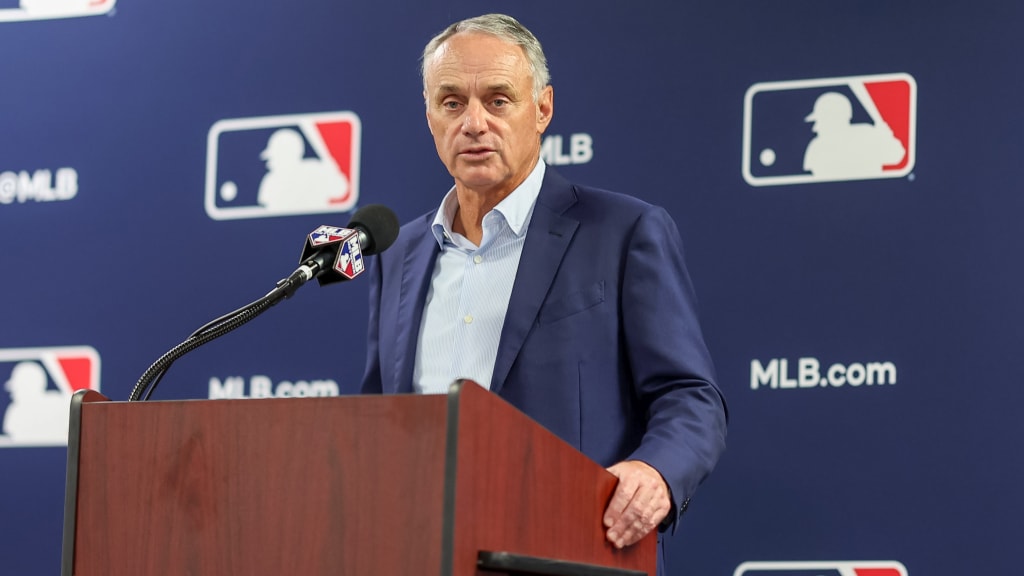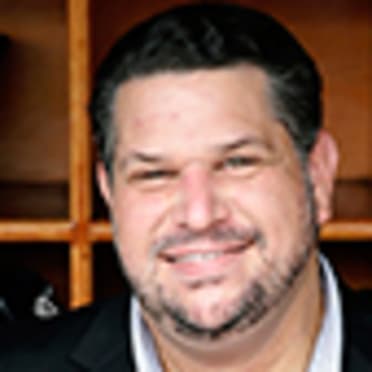
NEW YORK -- An automated ball-strike system may be headed to Major League Baseball sometime in the future, but any such changes are unlikely to take place by the 2025 season.
Commissioner Rob Manfred, speaking after the conclusion of the owners meetings at MLB’s offices in midtown Manhattan, said that some “issues” remain in the Minor Leagues, likely delaying the installment of the system -- widely known as ABS -- until at least 2026.
“We still have some technical issues; I don't mean technology, I mean technical issues in terms of the operation of the system,” Manfred said. “We haven't made as much progress in the Minor Leagues this year as we hoped at this point. I think it's becoming more and more likely that this will not be a go for ’25.
“One thing we did learn with the changes that we went through last year is taking the extra time to make sure you have it right is definitely the best approach. I think we're going to use that same approach here.”
Among the issues are the definition of the strike zone and setting the strike zone for individual batters, which can be based on percentages of a player’s height or the positioning of camera systems.
“I'm not sure that anybody is wholly satisfied with either approach,” Manfred said. “We have not started those conversations [with the MLBPA] because we haven't settled on what we think about it. It’s hard to have those conversations before you know what you're thinking.”
Manfred said there has been progress -- a “growing consensus,” as he put it -- based largely on feedback from players that if and when ABS makes it way to the Majors, the Challenge form “should be the form of ABS … at least as a starting point.” That system gives each team a limited number of challenges in each game to use in order to review a ball or strike call.
“Originally we thought everybody was going to be wholeheartedly in favor of the idea; if you can get it right every single time, that's a great idea,” Manfred said. “One thing we've learned in these meetings is that the players feel there could be other effects on the game that would be negative if you used it full-blown. The second one is those who have played with it do have a strong preference for the Challenge system over ABS calling every pitch. That has certainly altered our thinking on where we might be headed.”
One of those effects -- or as Manfred put it, “unintended consequences” -- of instituting a system in which ABS calls every pitch is the effect it would have on catchers who excel in framing.
“I think the players feel that a catcher that frames is part of the art of the game,” Manfred said. “If in fact framing is no longer important, the kind of players that would occupy that position might be different than they are today. You could hypothesize a world where instead of a premium catcher who's focused on defense, the catching position becomes a more offensive player. That alters people's careers, so those are real, legitimate concerns that we need to think all the way through before we jump off that bridge.”
